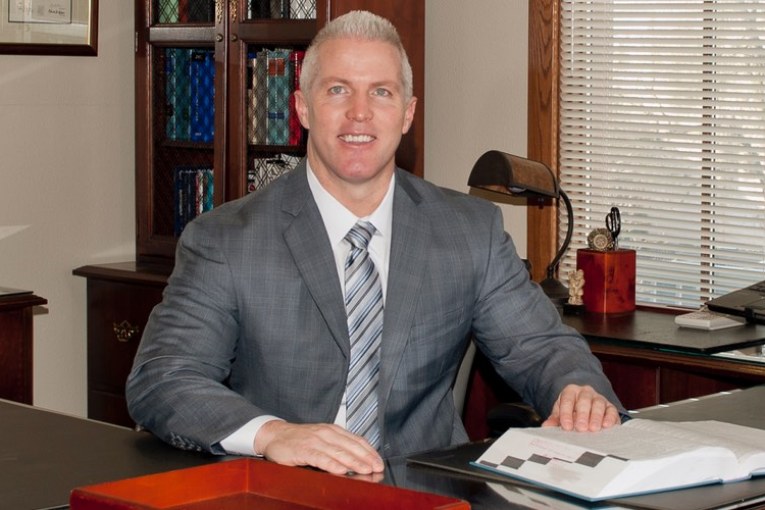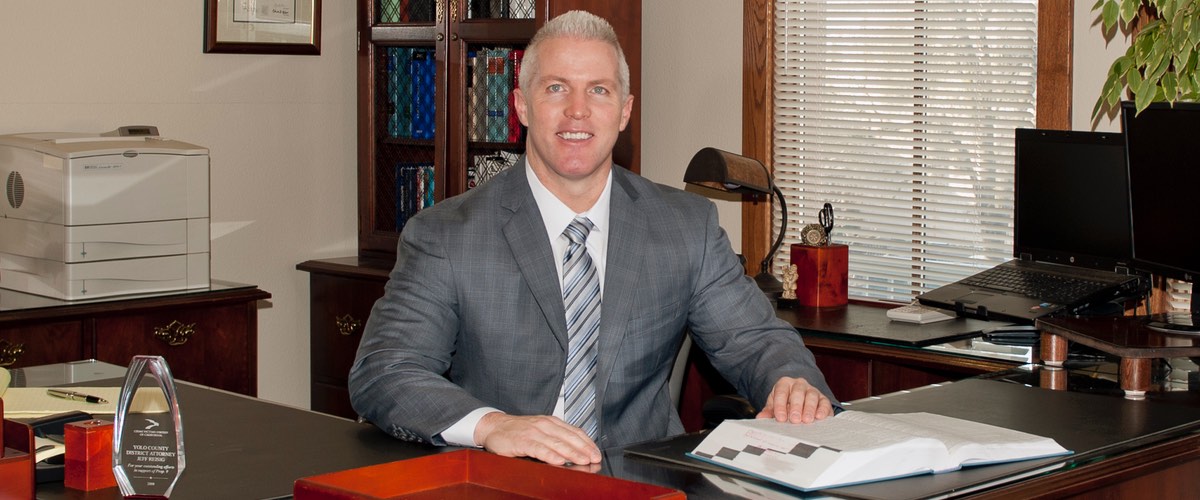

In last year’s election for district attorney, challenged as he never has been before, Jeff Reisig, the Yolo County District Attorney since 2007, struck back with the help of a local editorial, claiming to be one of the most progressive DAs in the state.
But, once again, his response to Governor Newsom’s moratorium on the death penalty shows that, rather than being a progressive reformer, when push comes to shove, Mr. Reisig is a rearguard defender of the status quo.
Instead, Jeff Reisig told the Winters Express on Wednesday that Governor Newsom’s executive action granted “leniency to mass murderers, child killers and hundreds of other heinous convicted killers on death row” and was a “flagrant rebuke to our democracy and another devastating blow to victims of crime.
“The voters of California have supported the death penalty again and again over the years, including their approval of Proposition 66 in 2016 to ensure death penalty implementation,” Reisig told the Express. “With the stroke of his pen, Newsom has unilaterally trumped the will of the electorate and guaranteed that victims of crime will not see the justice that they were promised by judges and juries through due process of law.
It is interesting that Mr. Reisig would appeal to voter sentiment. Voters in Yolo County supported Prop. 62, which would have banned the death penalty, by a 53.7 to 46.3 margin and they opposed Prop. 66 (the one he cited) by the exact same margin – 53-7 to 46.3 – which was passed statewide and sped up the death penalty process.
This is another area where Mr. Reisig is out of step, not only with the progressive movement statewide, but with his own voters. When he faced the voters, he narrowly escaped with reelection for a fourth term.
Meanwhile, it falls to other DAs across the state to seize the progressive mantle.
Compare Mr. Reisig’s response to San Francisco’s DA George Gascon, who said, “The death penalty is broken beyond repair, wastes a massive amount of taxpayer resources, and creates an unnecessary risk that the state will put an innocent person to death.”
Mr. Gascon argued, in contrast to Mr. Reisig, “State sanctioned killing does not deter crime, but in light of the unequal application of the death penalty to communities of color, it does inflict an extraordinary amount of harm to the moral authority of our justice system.”
Mr. Gascon also argued it (was) wasteful, noting that California has spent more than $5 million since 1978 while only executing 13 people in over 40 years. The cost to execute those inmates is estimated at $383 million per execution.
Mr. Gascon concludes: “The death penalty is morally dubious at best and it’s time to end it.”
Jeff Reisig during his time as DA has carried forth one death penalty case against convicted cop killer, Marco Topete. In addition, he prosecuted Brendt Volarvich, sentenced to death row after being convicted of the 2005 killing of CHP Officer Andy Stevens.
In 2012, Reisig wrote an op-ed in July pushing for the death penalty. He argued, “There are some murders that are so horrific that we, as a democratic society, have concluded that the death penalty is an appropriate punishment.”
He then blamed the current decline in the death penalty on the relentless attack of, among others, the ACLU: “The voters in California approved of the current death penalty law in 1978. Despite the will of the people, the American Civil Liberties Union and its allies have waged a relentless attack on public safety for decades, with a goal of overturning the death penalty. Their approach has been shameful and costly, in dollars and pain for victims.”
The night that the op-ed appeared in the Woodland paper, the Vanguard hosted its 2012 Annual Justice Dinner on the death penalty.
Among the guests speaking that evening was the author of that 1978 Death Penalty Law, Don Heller, himself a former prosecutor, who wrote the death penalty initiative for Senator Briggs in 1977 and which appeared on the November 1978 ballot.
“When I wrote it, I was absolutely certain beyond any doubt that what I was writing was morally right, was constitutionally sound, and would bring justice to people that deserved to be executed for heinous homicides,” Mr. Heller said. “I’ve gone from certainty to change.”
He cited “empirical evidence that the death penalty was not working as intended” as his impetus for changing his views. “It doesn’t work and it costs a fortune,” he added.
But for Jeff Reisig the huge costs are the responsibility of the ACLU: “The ACLU and its agents are responsible for endless delays in the criminal justice system, frivolous appeals and a mountain of misinformation. And now, they claim the death penalty is irrevocably broken and costly and should be repealed.”
In a response op-ed by Public Defender Tracie Olson, she points out that, while Mr. Reisig laments the endless delays in the system, evidence emerging showed that a number of innocent people – later exonerated – were sentenced to death.
Kirk Bloodworth, she wrote, “was the first American to be freed from death row as a result of exoneration by DNA fingerprinting. “
She writes: “False confessions, witness misidentification, junk science, and prosecutorial and police misconduct are other significant reasons that result in incarcerating the innocent.”
A number of Americans have also been exonerated posthumously, she argued. She wrote: “Many believe that Cameron Todd Willingham, executed in 2004 for the arson death of his three daughters, will likely be another, as arson experts have all but debunked the evidence that convicted him at trial. At least ten more have been identified as executed but probably innocent.”
She added: “I doubt anyone could defend the notion that the long legal processes that freed these innocent people were frivolous. Indisputably, those exonerated posthumously did not receive due process of the law, and the established checks and balances of the criminal justice system irrevocably failed them.”
Here we are, 2019 now, and little has changed in the views of Yolo County’s chief prosecutor. Meanwhile, a number of other DAs across the state have moved forward, including Mr. Gascon in San Francisco.
—David M. Greenwald reporting






